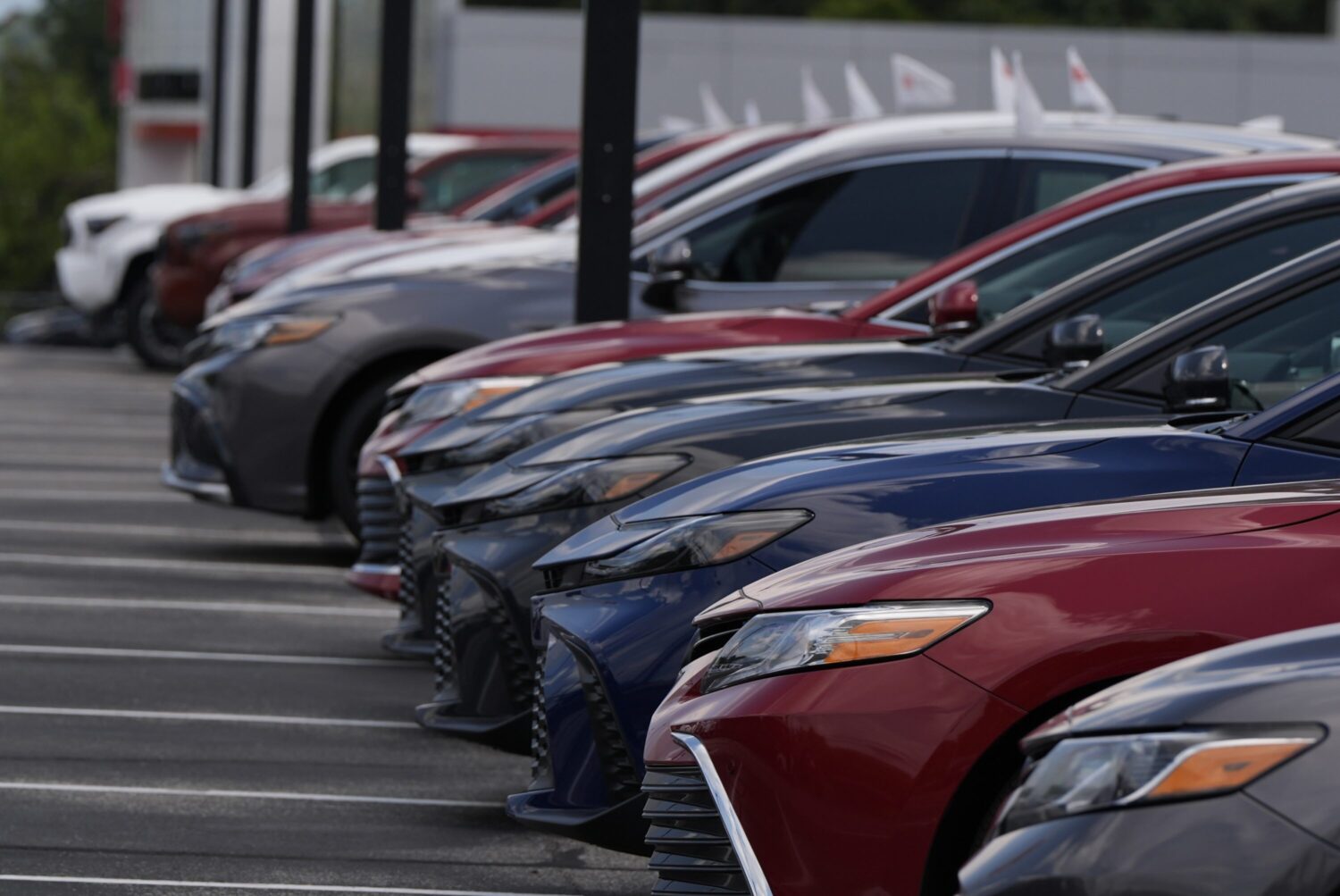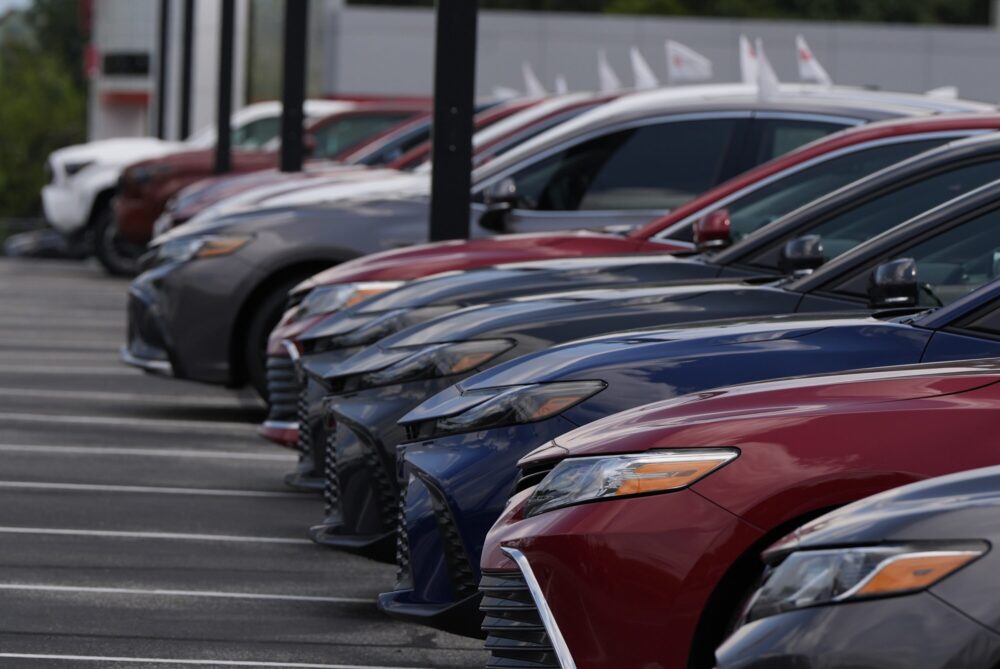AP Photo/Mike Stewart
New Toyota vehicles are seen, Friday, Aug. 1, 2025, in Dalton, Ga.
Japan, a major manufacturer of cars and trucks, recently negotiated an agreement with the United States to have a lower tariff on its exports.
Last Thursday’s executive order by President Donald Trump, formalizing a deal in which a baseline tariff of 15% will apply to Japanese imports entering the U.S., comes as American automakers and consumers have seen substantial impacts of import taxes previously implemented by Trump. In April, his administration placed a 25% tariff on imported automobiles and parts.
“This is a huge change because up until recently a car or an SUV only paid a duty of 2.5%,” David A. Gantz, a trade and international economics fellow at Rice University’s Baker Institute for Public Policy, said Friday on Houston Public Media’s “Hello Houston” show.
“Now, of course, it’s increased by a great amount,” he added.
The idea behind the tariffs is to prioritize the manufacturing and purchasing of American-made cars over imported cars, with the hopes of enticing and persuading companies to produce more cars and parts in the U.S.
But customers in Houston and elsewhere across the U.S. could at some point see a $5,000 increase in imported car prices due to tariffs, according to Gantz, who said the increase applies to used cars as well as new ones.
“The used car market and the new car market are related,” Gantz said. “If new car prices go up, good used cars will go up as well.”
Exports of cars made in the U.S. figure to be affected as well. Two months after the tariff on foreign-made automobiles was implemented, the Trump administration placed a tariff on steel, aluminum and copper – materials that are essential for producing cars.
Both tariffs will increase the cost of car production in the U.S., which consequently could cause a decline in demand for U.S. cars, Gantz said.
“American car makers have a double whammy,” he said. “They’re paying new, high duties on parts and components, but they’re also paying much higher costs for steel and aluminum and copper. U.S. auto production will become unproductive, so exports will probably decline as well.”
American car manufacturers are expecting major losses this year due to the tariffs. According to NPR, General Motors reported spending $1.1 billion on tariffs over a three-month period. Stellantis, the parent company of Chrysler, Dodge, Jeep and Ram, expects to pay $1.7 billion in tariffs for the year.
“So in the short term, the manufacturers basically have two choices,” Gantz said. “They can either absorb the costs, which many of them are doing now, but this won’t last forever. Or they can increase the prices that they’re charging to their customers. Re-doing the supply lines is potentially possible, but it takes a long time.”

